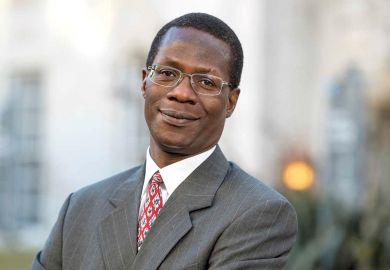What is more abject than a chemist?" asked Andreas Libavius in the 16th century, before going on to assert that a chemist is the enemy of nature, morally corrupt, far too horrible and disgusting to find adequate words of contempt to express. That Libavius was himself a chemist and an author of a notable textbook might be construed as well-informed self-deprecation; but in fact he was warning people off the quacks masquerading as transmuters, purveyors of quintessence and herbal drivellers: in a word, alchemists.
Just as the essence of a woman was not to be found in a prostitute, Libavius argued that the essence of chemistry was not to be found in alchemy.
Bruce Moran is not so sure. In this accessible and absorbing book, he explores the intellectual framework of alchemy and seeks to identify the extent to which alchemy was a science and how it contributed positively to the scientific revolution. Consider how puzzling matter was.
Take alcohol: a water that burns, a liquid that delays putrefaction, one that invigorates the living, and one with a potency that was increased by distillation. Clearly, distillation was the route to the spiritual nature of this paradoxical water, and why not the route to the core of other substances, too? Distillation and, more generally, the seeking after ultimate purities and essences, pervaded alchemy and is still in a sense the core of chemistry today.
Perhaps the most important contribution of chemistry to today's economy is catalysis, the speeding-up of chemical reactions to industrially viable rates and their direction into channels that produce desirable compounds.
In other words, catalysts are today's versions of the philosopher's stone or the elixir of life. An alchemist's view was that substances mature when left for long enough, thus coal might settle into its purest essence, diamond, and metals would mature into their apotheosis, gold. What better to help nature, and one's own wealth, than by finding an elixir that would speed things along rapidly to perfection?
Alchemy, like science today, was viewed suspiciously and ambiguously by the religious. Pope John XXII declared in 1317 that alchemists presumed to carry out operations that were against nature. On the other hand, our own Henry VI mused that priests might be rather good at transmutation on the grounds that they achieved transubstantiation during the Mass.
Moran identifies the continuity of intellectual ideas, seeing parallels between attitudes central to alchemy and chemistry and distils from impure and misleading conceptions of alchemy an appreciation of what its practitioners sought to do. He regards science as existential as well as cognitive in the sense that it is made up of "numerous creative experiences, at home, in the workshop, as well as in the library". That is indeed part of its strength; and if the corn of observation can be distinguished from the chaff of deceit by the central aspect of science, its public scrutiny by controlled experimentation, we can but agree; without those aspects, however, such existentialism is but art.
I can recommend this elegant book without hesitation to anyone who wishes to understand the practices and motivations of the alchemists as they sank over the horizon in the 16th and 17th centuries and the true chemists rose to take their place. Of course there were quacks, there always are where profit and gullibility are allied, but there was also a central intellectual spine.
Peter Atkins is professor of chemistry, Oxford University.
Distilling Knowledge: Alchemy, Chemistry, and the Scientific Revolution
Author - Bruce T. Moran
Publisher - Harvard University Press
Pages - 210
Price - £16.95
ISBN - 0 674 01495 2
Register to continue
Why register?
- Registration is free and only takes a moment
- Once registered, you can read 3 articles a month
- Sign up for our newsletter
Subscribe
Or subscribe for unlimited access to:
- Unlimited access to news, views, insights & reviews
- Digital editions
- Digital access to THE’s university and college rankings analysis
Already registered or a current subscriber?



